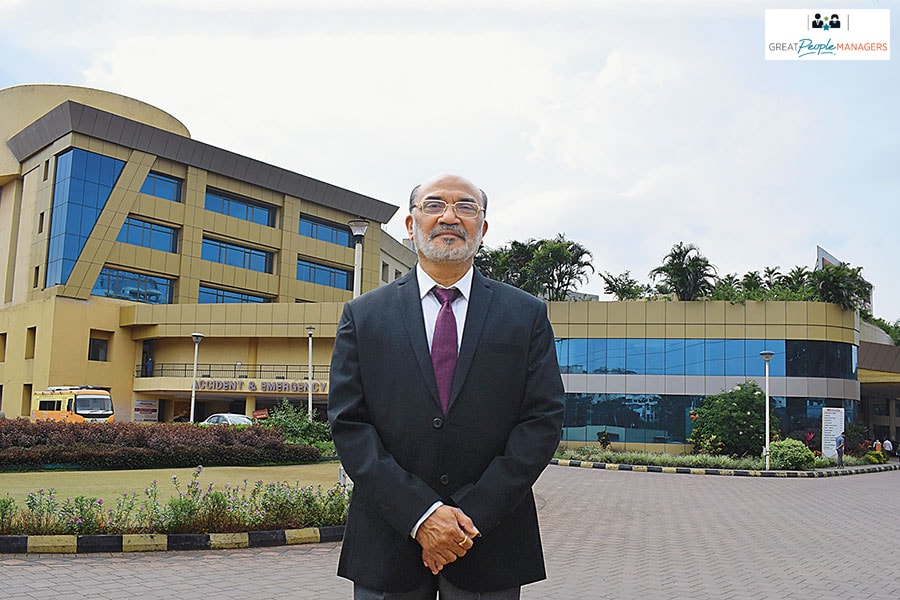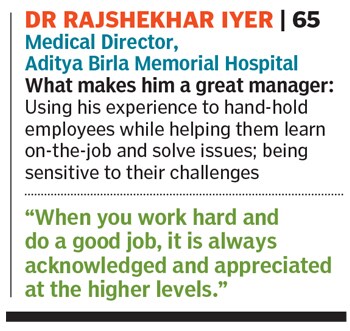Dr Rajshekhar Iyer: Empathetic by example
Aditya Birla Memorial Hospital's Dr Rajshekhar Iyer draws on his decades of experience in the public health sector to lead his team


Dr Rajshekhar Iyer[br]
Dr Rajshekhar Iyer mentions multiple times during an hour-long conversation that he has not learnt management in a classroom. The medical director of the Aditya Birla Memorial Hospital (ABMH), located in the Pimpri-Chinchwad city of Maharashtra, says all his lessons in dealing with people come from experience, particularly after spending over three decades of his career in providing public health care services. “No work is big or small. When I help the clerical staff perform their duties well, sometimes by doing their tasks myself, nothing could be more motivating,” he says.Iyer, 65, has managed to keep this philosophy at the core of the hospital’s battle against the pandemic. The Pimpri-Chinchwad region has registered among the highest Covid-19 cases in Maharashtra—the worst-affected state in the country. The ABMH has around 125-odd beds out of 190 dedicated to coronavirus patients, and plans to add about 35 more. But a shortage of nurses and junior doctors means that all hands, across designations and ranks, have to be on deck. “I tell neurosurgeons, gastroenterologists and other super-speciality professionals that they are an MBBS too, so as doctors, they must help out with Covid duty,” he says.
Keeping motivation high is a challenge, especially when medical professionals are working for over 10 hours a day without a break. But Iyer knows a thing or two about working in difficult circumstances with limited resources. The MBBS graduate from GR Medical College in Gwalior, with a postgraduate specialisation in community medicine from BJ Medical College in Pune, joined the Pimpri-Chinchwad Municipal Corporation (PCMC) in 1979.At the time, there was just one outpatient clinic in a region Iyer describes as “a conglomeration of five gram panchayats in a mofussil area”. By the time he retired as medical director of PCMC in May 2012, Iyer says there were nine big hospitals and about 25 dispensaries in the region providing medical services, including super-speciality treatments, at subsidised rates. The key to achieving that, he explains, was to work together with various stakeholders, ranging from fellow officials to politicians.
Iyer, who joined ABMH in July 2012, says the public health sector has a clearly outlined hierarchy of work, with collective responsibility and accountability at every level. In the corporate sector, he finds that most of the responsibility has to be shouldered by heads of departments or leaders. So he volunteers to interact with young recruits and guides them. “You have to create a sense of security among patients and their families, who are usually very tense or sad, and have a humane approach,” he says. “I teach youngsters to never take anything associated with patients for granted, and have the patience to clarify the smallest of their doubts.”
Yuvraj Dnyanoba, manager—academics at ABMH, has worked with Iyer for seven years and swears by his empathetic approach. “He has always guided me whenever I needed help. He has tremendous knowledge with which he teaches us to deal with issues.”
First Published: Oct 14, 2020, 15:32
Subscribe Now
